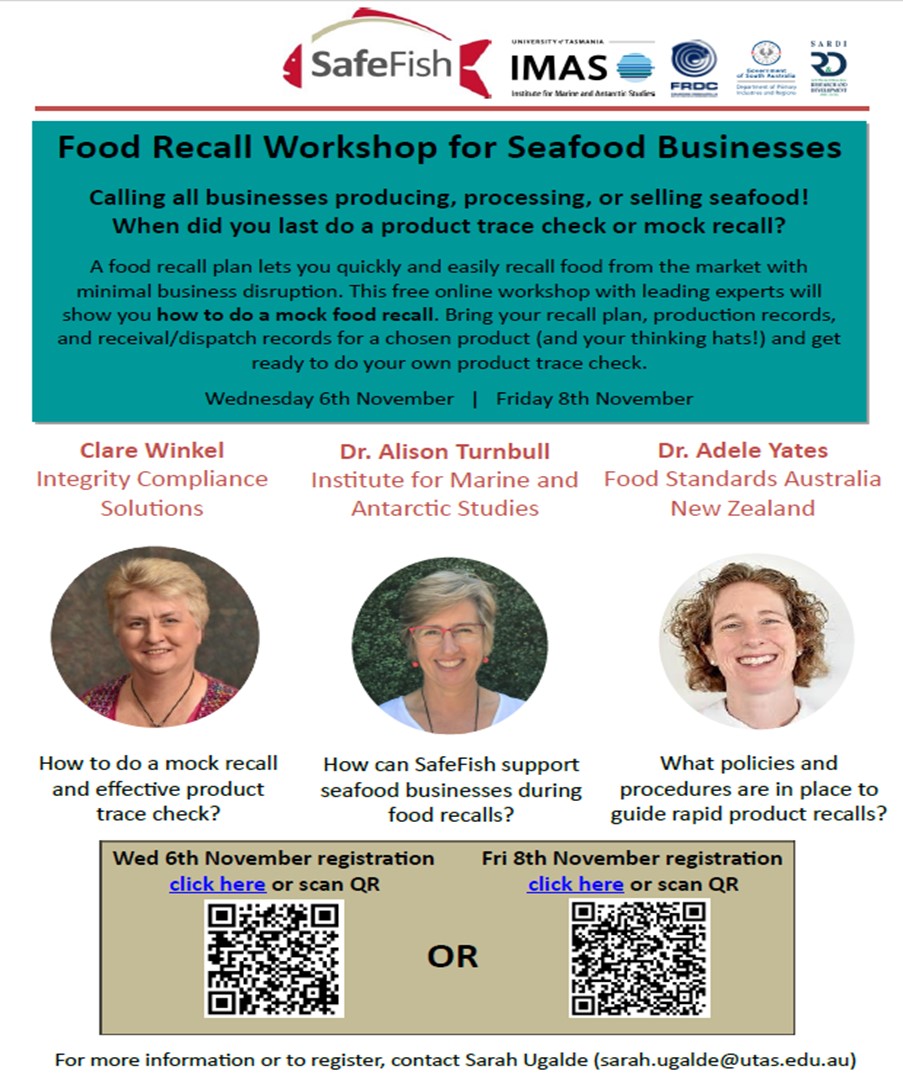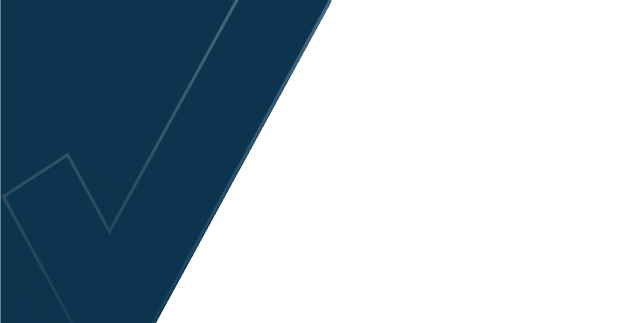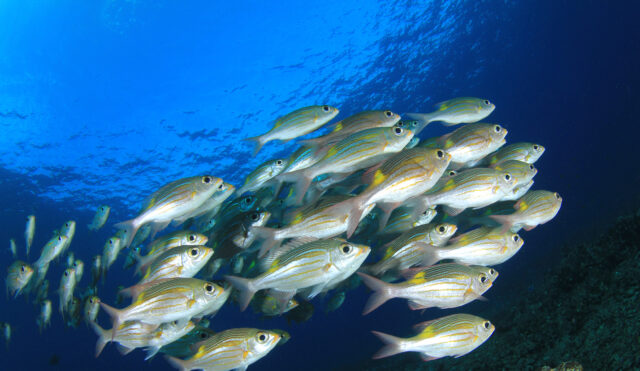PrimeSafe eNews Edition 22
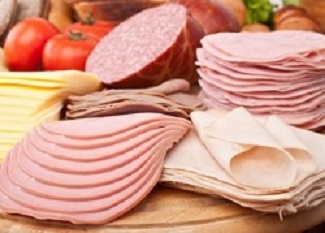
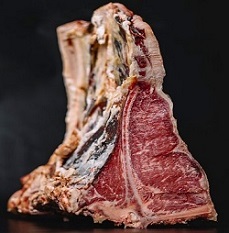
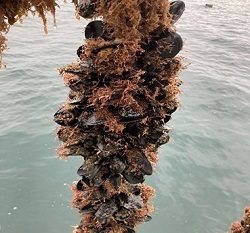
In this Edition:
- PrimeSafe Licensee Survey
- PrimeSafe Verification Programs;
- Virtual Assessments;
- PrimeSafe Listeria Forums;
- Seafood Safety Regulations 2024;
- Food Safety Programs; and
- Food Recall Workshop for Seafood Businesses.
PrimeSafe Licensee Survey 2024
PrimeSafe regularly conducts licensee surveys every 2-3 years to evaluate the effectiveness of its communication strategy. The previous surveys were completed in 2018 and 2020. The PrimeSafe Board approved a survey to be conducted this year which is likely to take place in October/November.
This survey is an essential part of enhancing our regulatory functions for meat, seafood, poultry and pet meat and deliver on our statement of expectations required by the Victorian Government. To complete the survey, you may be contacted by a third-party survey company, ‘WhereTo’ and requested to answer some questions relating to your overall interactions with PrimeSafe. Questions will relate to your experiences with the licensing process, the PrimeSafe website, food safety audits and any queries/information requests you may have had.
Your participation in this survey is important and enables us to make changes to our communications strategy which may help with your future interactions with PrimeSafe. For more information about the PrimeSafe licensee survey please contact us by email info@primesafe.vic.gov.au.
PrimeSafe Verification Programs
Sulphur Dioxide Testing Programs (SO2)
This program is conducted to sample fresh meat products for the illegal use of SO2, which is a preservative prohibited in all fresh meat products except fresh sausages. The level of SO2 for use in fresh sausages is prescribed by the Food Standards Code Australia New Zealand and can only be used for sausages that will be cooked before consumption.
Previously, if there was a positive detection of SO2 in fresh meat other than sausages, a sanction under section 74 of the Meat Industry Act 1993 was imposed, where a business was closed until the sanction was revoked. PrimeSafe has now amended its enforcement policy for a SO2 breach to include other options such as prohibiting a particular process, suspending or cancelling a licence, or prosecuting an offender. This aligns more closely with the actual offence committed and will be determined depending on the particular circumstances of each case.
Unannounced Surveillance Verification Program (USVP)
A pilot USVP was conducted in 2023 and 2024 to support the implementation of the regulatory modernisation program which included reduced third party audits for a range of licence categories. The pilot USVP was conducted in conjunction with the SO2 program. The results of the pilot indicated non-compliance at 15.5% at these unannounced inspections compared with 5.2% non-compliance at scheduled third party audits over the same period. The USVP will now be implemented as an ongoing feature of PrimeSafe’s surveillance programs. Unannounced inspections of certain licensed facilities will be conducted by PrimeSafe officers to assess compliance with Critical Control Points (CCPs) and licence conditions. No fees are charged for these inspections however corrective actions and/or sanctions will be imposed where non-compliance is identified in accordance with the PrimeSafe Compliance and Enforcement Policy.
Repeat Corrective Action Request (CAR) Program
The criterion to be subject to the Repeat CAR program remains unchanged and includes any licensed meat or seafood processing facility identified having more than one major or critical non-conformance and/or PrimeSafe sanction during a 12-month period, or at consecutive scheduled audits.
The licensee, rather than having an unannounced inspection by PrimeSafe, will now be subject to a PrimeSafe investigation where the licensee is invited to attend a PrimeSafe meeting to discuss proposed corrective actions to prevent future non-compliance. Part of this discussion will involve a root cause analysis and discussion as to why the non-compliance occurred. Following the investigation, the facility will be placed on an Increased Audit Schedule (i.e. usually an audit every 4 months for a minimum period of 12 months or until sustained compliance is demonstrated).
Online Surveillance Program
The online surveillance program will focus more on the use of social media to identify illegal meat and seafood operations (i.e. unlicensed businesses). This is consistently monitored by PrimeSafe to ensure safe and wholesome production and sale of meat, seafood and pet meat products.
Virtual Assessments
During Covid-19, many regulators including PrimeSafe conducted audits and inspections remotely. Some of the processes and techniques used during that period continue to compliment the usual processes used for assessing compliance. The main process, “Virtual assessments”, has now been formally implemented into PrimeSafe’s regulatory processes to allow PrimeSafe staff and third-party auditors to determine compliance for low-risk inspections. This includes assessing compliance of vehicles, field depots, and vessels, and may involve the use of technologies such as photos, videos, live streaming and artificial intelligence. The use of virtual assessments for low-risk compliance activity will allow PrimeSafe to further reduce unnecessary regulatory burden and cost for industry.
PrimeSafe Listeria Forum
PrimeSafe held a Listeria forum for licensees, auditors and other stakeholders on 16 July 2024. The event was attended by 46 people. The forum topics included:
- Introduction to Listeria
- Listeria monocytogenes and public health impacts
- Listeria, Managing the risks and meeting the standards
- Auditing facilities that manage Listeria
The Food Standards Code Australia New Zealand prescribes the limits for LM which is particularly important when processing RTE foods because they will not be heated prior to consumption Click here
More information regarding sampling and testing of LM in the environment and in meat products can be found in the Australian Meat Regulators Group Guidelines for Management of Listeria Click here
If you need further guidance on Listeria, please contact PrimeSafe at info@primesafe.vic.gov.au
Seafood Safety Regulations 2024
The Seafood Safety Regulations (2018), which is read in conjunction with the Seafood Safety Act (2003) has been revised. The new Seafood Safety Regulations (2024) can be accessed via this link.
Food Safety Programs
PrimeSafe food safety programs are available on request. Free food safety programs are only available for retailers of meat and seafood who conduct minimal processes. To access a free food safety program, you can send a request email to PrimeSafe at info@primesafe.vic.gov.au and quote your PrimeSafe licence.
For more complex activities such as smallgoods processing, dry ageing or wet storage of bivalve shellfish, you can access a food safety program under a “fee for service” provided you are licensed with PrimeSafe and have a further meat or seafood processing licence. Please contact PrimeSafe at info@primesafe.vic.gov.au.
Food Recall Workshop for Seafood Businesses
A food recall workshop will be held on the 6th and 8th of November to assist seafood businesses to gain a better understanding of the food recall processes. The free on-line workshop will show you how to conduct a mock recall by using your own recall plan. More details about the workshop can be found in the flyer below.
